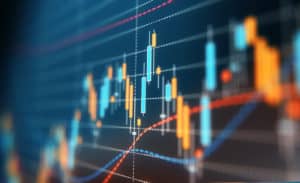 At TradeTech Europe 2023, panellists discussed how firms can adapt to multi-asset demands and how the right skillsets, market expertise and tech capabilities can be implemented to build an agile multi-asset business.
At TradeTech Europe 2023, panellists discussed how firms can adapt to multi-asset demands and how the right skillsets, market expertise and tech capabilities can be implemented to build an agile multi-asset business.
External challenges such as a lack of liquidity, increased regulation and rising fees have left trading desks in a position where they have to do more with less to maintain profitability. Internal challenges such as the optimisation of data was also identified as being key for firms, while also dealing with legacy technologies and diversifying talent pools.
“Data is key. New types of data are increasingly becoming relevant to the desk and diversifying tech platforms – not just the skills and people, but also diversifying platforms – can help with existing challenges,” said James Munro, CTO at Man AHL.
“Liquidity challenges and economic change means you need to make sure you have enough providers for everything and you need to know exactly where that liquidity is, which connects back to that need for rich data.”
With growing talent pools, it is important to ensure firms are making the most of the skillsets and market expertise they have, alongside ensuring talent is being used in the most efficient ways, noted panellists.
“We have more humans than ever, but they do not do the stuff they were doing several years ago – machines are able to do that today,” said Rafa Lopez-Espinosa, COO of international business at Point 72.
“The big effort of our investment in data, technology and automation is to free up high value human time to do the most alpha manipulation activities.”
Looking at how to build a high performing and agile multi-asset business, one panellist noted the importance of sharing information across the desk.
“In terms of being tactical when addressing the market, it’s important that we share information across the desk. Historically, if you had a terminal and you were watching the markets, you would say ‘this is the asset class I am focused on’. This is, however, a view of the world and we benefit if you are sharing that across our platform,” said Marc Wyatt, global head of trading at T. Rowe Price.
“With liquidity being constrained, we might not always be able to express the trade in the exact instrument that we would like to for lack of liquidity in it, so therefore, we might have to come up with a new way of expressing that trade and that requires a cross-asset discipline but also knowledge on how you can express that trade in other parts of the market.”
The role of traders is also shifting with growing multi-asset demands, however, panellists noted that the evolution is more so about equipping traders with new skills as opposed to replacing them entirely.
“The desk is not going anywhere, but what people are doing will continue to change as it always has. Richer data is definitely an aspect of that, with multidisciplinary teams needed to ensure everything is measurable and understandable,” added Munro.
“Technology such as Chat GPT are just awesome suggesters, but there is a limit to their ability to rationalise what’s going on and understand connection across data sets. Technology will impact desks, and impact tech teams making them faster. You need a team that will be able to respond to that which brings us back to the need for a multidisciplinary team, which will be the most agile team in these circumstances.”
Wyatt concluded that advancements in technology and automation will add scale, essential acting as a supplement as opposed to a complete replacement of human talent.